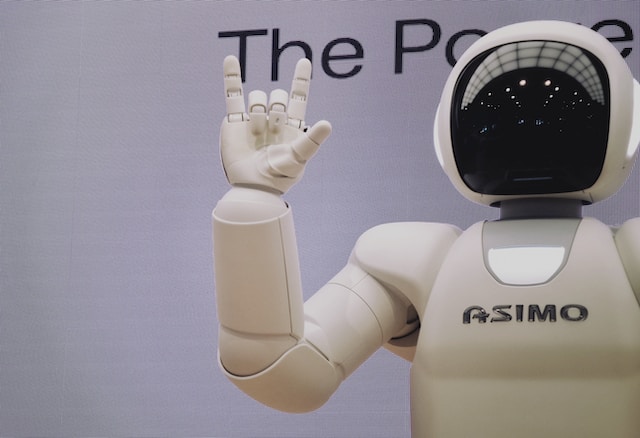Introduction
In today’s rapidly advancing technological landscape artificial intelligence (AI) has emerged as a groundbreaking innovation with the potential to revolutionize numerous industries. This article delves into the extensive applications of AI across various sectors and explores the implications it holds for businesses worldwide. By harnessing the power of AI organizations can unlock unprecedented opportunities optimize operations and gain a competitive edge in an increasingly digital world.
AI in Healthcare
Artificial intelligence has made significant strides in the healthcare industry presenting a myriad of possibilities for improving patient care and medical research. With AI-powered diagnostic systems medical professionals can enhance accuracy in disease detection enabling early intervention and personalized treatment plans. Machine learning algorithms can analyze vast amounts of patient data providing valuable insights that contribute to faster diagnoses and improved outcomes. Moreover AI-driven robotics assist in complex surgeries augmenting surgical precision and reducing risks.
AI in Finance
The financial sector has also embraced AI as a transformative force. Machine learning algorithms can analyze vast volumes of financial data identifying patterns and trends that aid in making informed investment decisions. AI-powered chatbots and virtual assistants streamline customer service offering personalized experiences and efficient problem resolution. Fraud detection systems leverage AI to detect suspicious activities and protect against financial crimes. Overall AI is reshaping the finance industry by enhancing efficiency minimizing risks and driving innovation.
AI in Manufacturing
In the manufacturing realm AI has ushered in the era of smart factories revolutionizing production processes and supply chain management. AI-driven predictive maintenance systems analyze equipment data to detect potential failures and optimize maintenance schedules reducing downtime and maximizing productivity. Robotics and automation powered by AI enhance efficiency and precision in assembly lines. Furthermore AI-powered inventory management systems optimize stock levels minimizing waste and ensuring timely deliveries. These advancements enhance operational efficiency cost-effectiveness and overall productivity in the manufacturing sector.
AI in Retail
Retail businesses have embraced AI to transform customer experiences and optimize their operations. AI-powered recommendation systems analyze customer data to provide personalized product suggestions increasing sales and customer satisfaction. Virtual shopping assistants leverage natural language processing to assist customers in finding products answering queries and offering tailored recommendations. AI-enabled inventory management systems ensure accurate stock tracking and automated replenishment minimizing out-of-stock situations and improving supply chain efficiency. By harnessing the power of AI retailers can deliver seamless personalized experiences that drive customer loyalty and business growth.
AI in Transportation
The transportation industry is experiencing a paradigm shift with the integration of AI technologies. Autonomous vehicles powered by AI algorithms are poised to revolutionize transportation systems offering increased safety reduced congestion and improved fuel efficiency. AI-driven traffic management systems optimize traffic flow minimizing delays and maximizing road capacity. Additionally AI-powered predictive maintenance systems enhance the reliability of transportation assets reducing downtime and improving operational efficiency. By leveraging AI the transportation sector is set to transform mobility delivering greener and more efficient solutions.
AI in Education
The education sector is also embracing AI to enhance learning experiences and facilitate personalized education. Intelligent tutoring systems leverage AI to adapt instructional content and pace according to individual student needs fostering improved comprehension and engagement. AI-powered virtual reality and augmented reality applications provide immersive learning experiences enabling students to explore complex concepts in a hands-on manner. Furthermore AI-driven data analytics enable educators to gain insights into student performance and identify areas that require additional attention. By harnessing AI’s potential the education sector can revolutionize traditional teaching methods and empower learners worldwide.
Implications of AI
While the applications of AI across industries are undoubtedly transformative it is essential to consider the implications and challenges that arise with its adoption. Privacy concerns data security and ethical considerations must be addressed to ensure responsible and transparent use of AI. Organizations must navigate potential biases in AI algorithms and strive for fairness and inclusivity. Furthermore reskilling and upskilling the workforce to adapt to AI-driven environments is crucial to harness its full potential. By understanding and addressing these implications businesses can leverage AI responsibly and effectively.
Conclusion
In conclusion artificial intelligence has emerged as a game-changer across various industries presenting endless opportunities for innovation and growth. From healthcare and finance to manufacturing retail transportation and education AI’s applications are reshaping the way businesses operate. By embracing AI technologies organizations can optimize processes enhance customer experiences and drive competitive advantage. However it is vital to navigate the implications and challenges that accompany AI’s adoption ensuring responsible and ethical use. In this ever-evolving digital landscape harnessing the power of AI will be instrumental in propelling businesses forward.

Hi, I’m Jodie! I’m a spain-Moroccan writer with a passion for imagination, adventures, magic and stories with heart.
Please don’t hesitate to contact me for any questions, suggestions, comments or feedback.

















Add comment